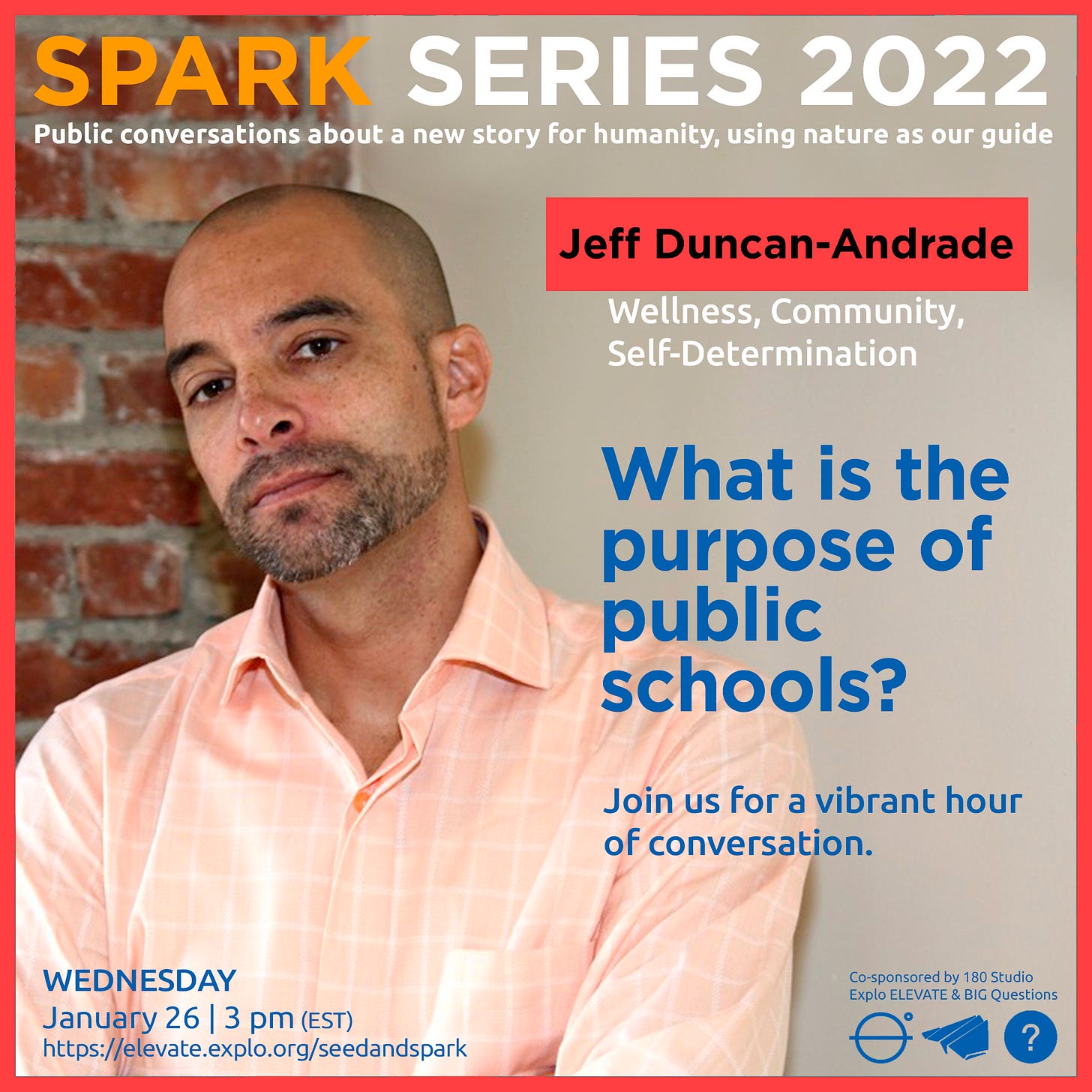What is the purpose of public schools?
For Jeff Duncan-Andrade, a lifelong educator, school founder, and professor of Latina/o Studies and Race and Resistance at San Francisco State University, the answer depends on which sort of society you envision.
But if you take the last 200+ years of American history as our collective answer to that question, the one we have envisioned is, simply put, the one we now have — a social (dis)order marked by radical inequality, mass incarceration, and entrenched social apartheid at every turn.

For Andrade, a proper education is one that “teaches kids they can transform things. They not only learn to think for themselves, they learn they can define new limits for themselves.” That sort of education, however, is rarely the one that is available to students of color.
By contrast, in those schools, the emphasis is on “order, control, compliance and accepting your station in life. What’s pounded into these kids is that to do well in school you don’t challenge, you don’t question, you don’t get too excited and demonstrate your passion for learning by jumping out of your seat. If you’re a good student, you contain yourself.”
How, then, can we transform the systems that hold us prisoner?
And what can each of us do to support a system of public schools that are equitable, vibrant, and alive?
Join us for a special Spark Series event with Jeff Duncan-Andrade this week — Wednesday, January 26th, at 3pm EST (note the earlier start time) — and if you want a sneak preview (and a better understanding of the distinction between equality and equity, and why it matters so much), see below.
This is how we #changethestory . . .
Recent Comments